Charger Sofirn 8 slots AA/AAA
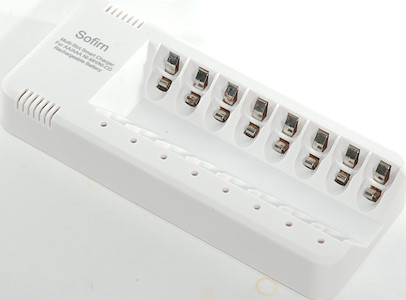

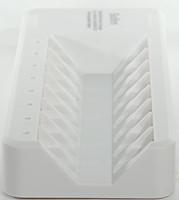
This charger is a fairly cheap and slow 8 slot NiMH charger.
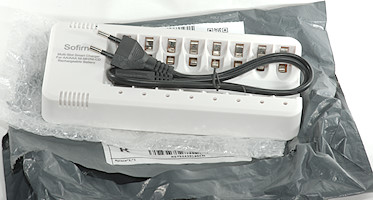
I got it in a plastic bag without any box or instruction sheet.
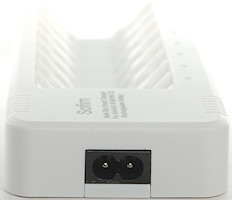
The charger works on mains voltage.
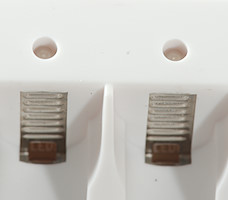
Each slot has a two color led, red while charging and green when finished.
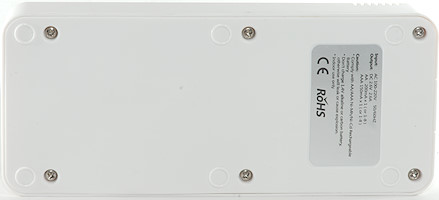
The back has the usual specifications on it. Do not be confused by the 2.6V, it is individual cell handling.
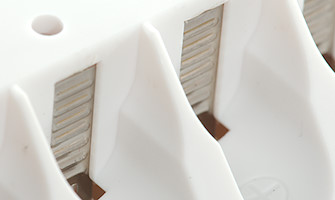
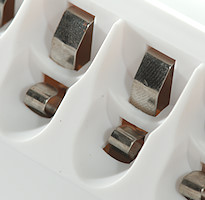
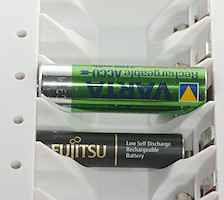
The slots are the usual two level slots used for AA/AAA batteries.


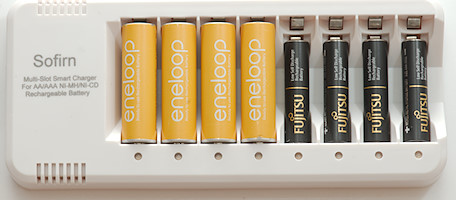
Measurements
- Power consumption when idle is 0.2 watt.
- Will discharge battery with 7mA when power is off
- Charge will restart charging after power loss, or battery insertion.
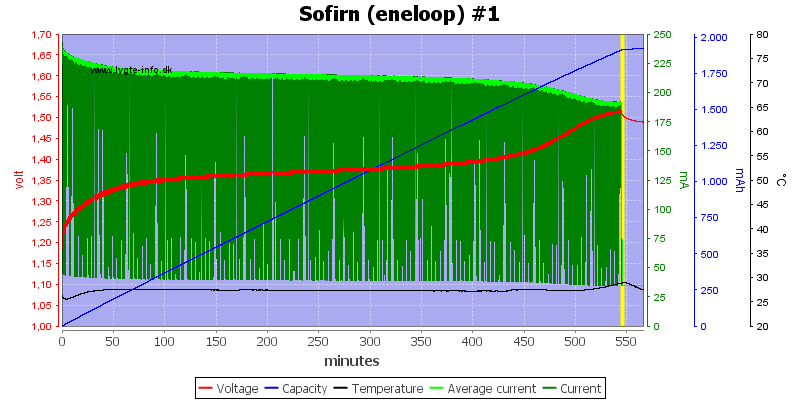
The charger current is fairly low at about 200mA, this means the charger time is nearly 10 hours. The termination looks fine for this cell, as can be seen on the black line the temperature has started rise and then the charger stops.
Stops may not be the correct word, the charger has some trickle charge, the low charge current makes it very easy to see it on the curves, it is around 35mA.
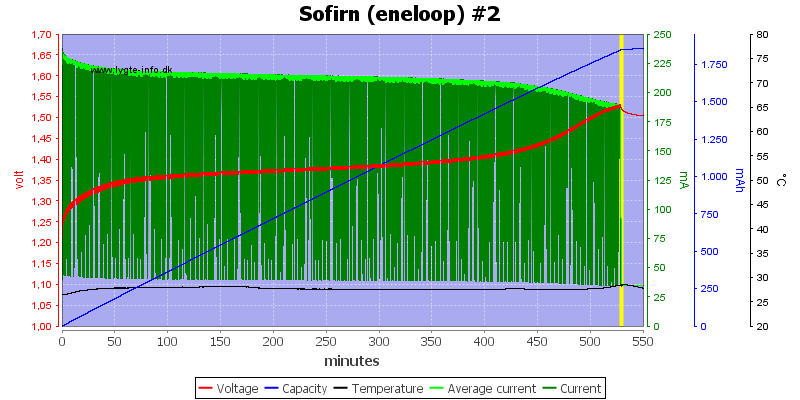
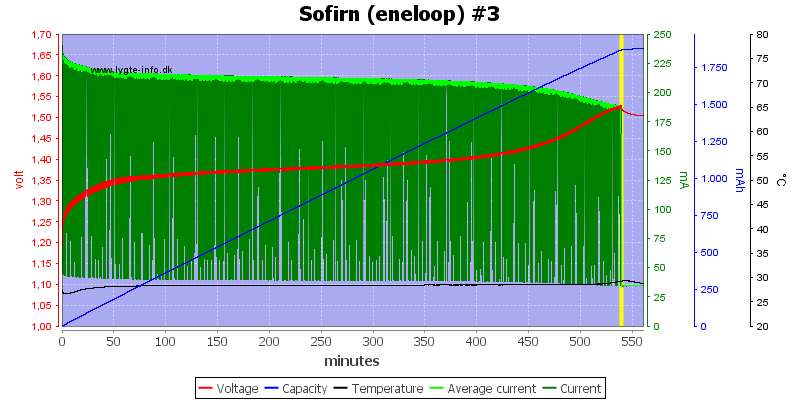
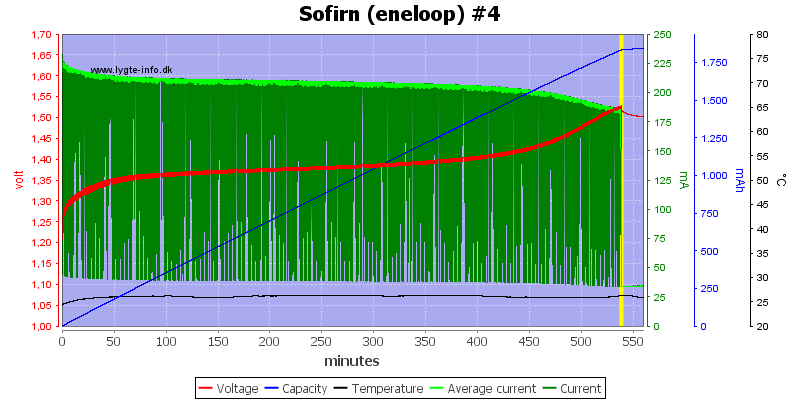
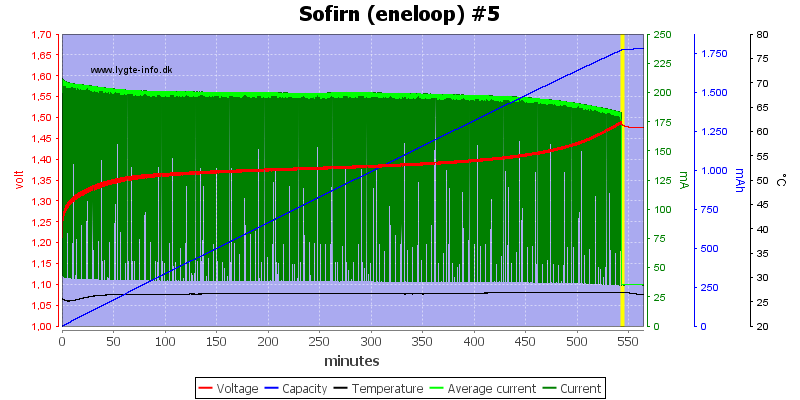
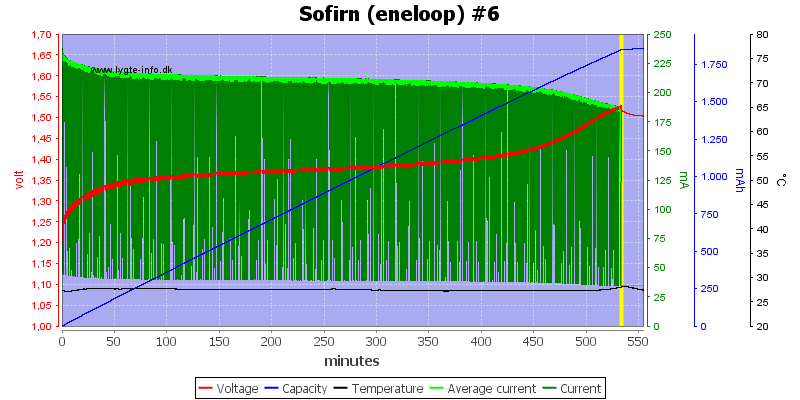
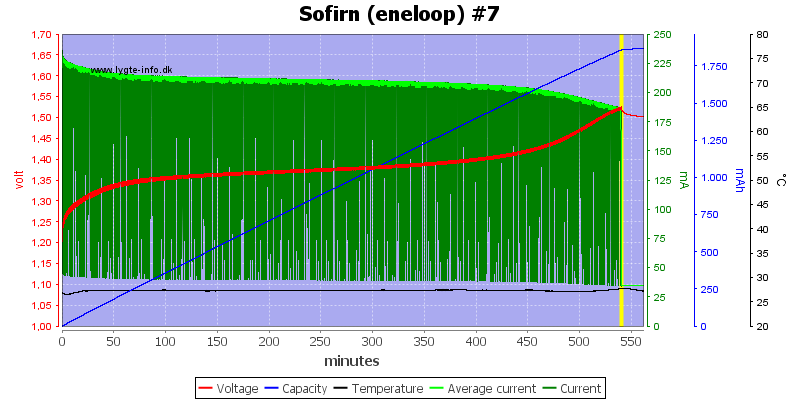
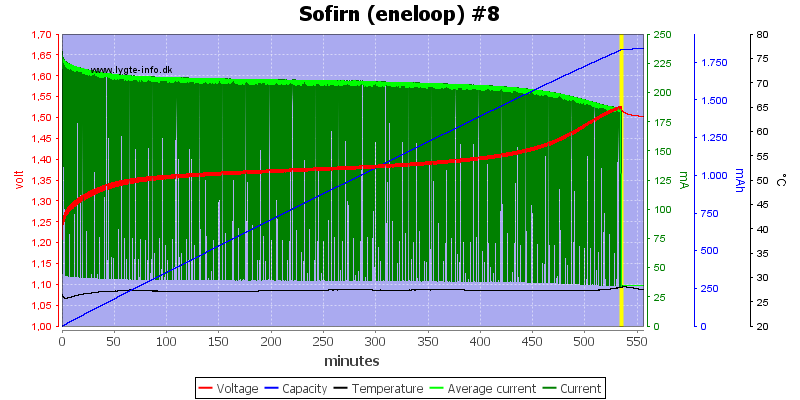
The other slots looks the same.
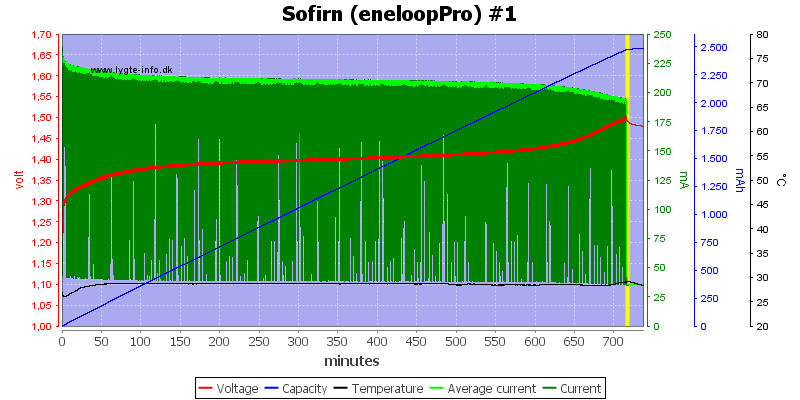
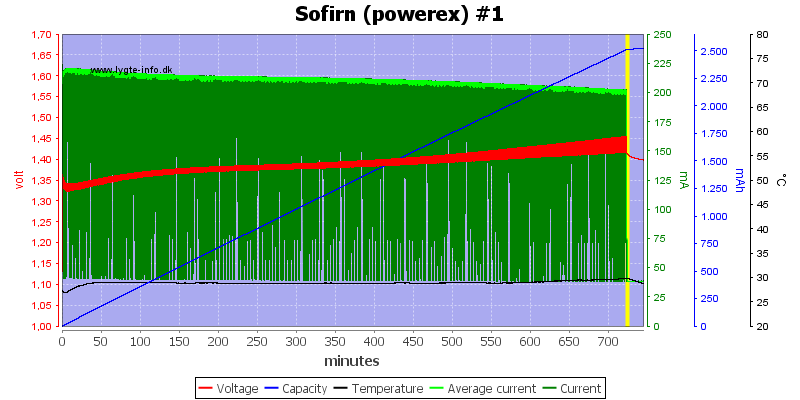
The high capacity cells is charged nicely.
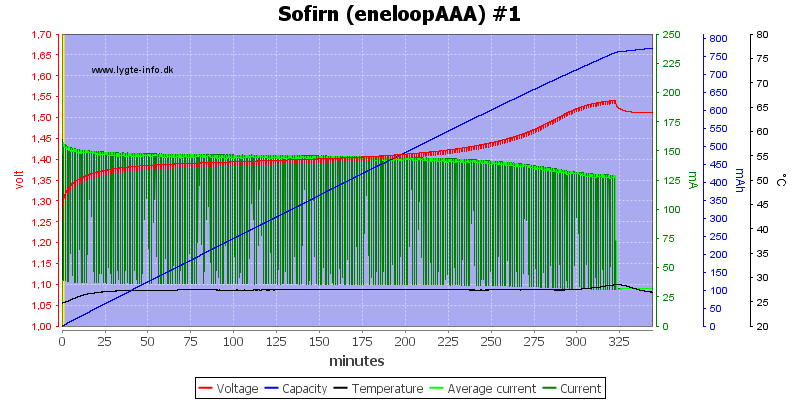
The AAA cell is charged nicely, the charge current is a bit lower
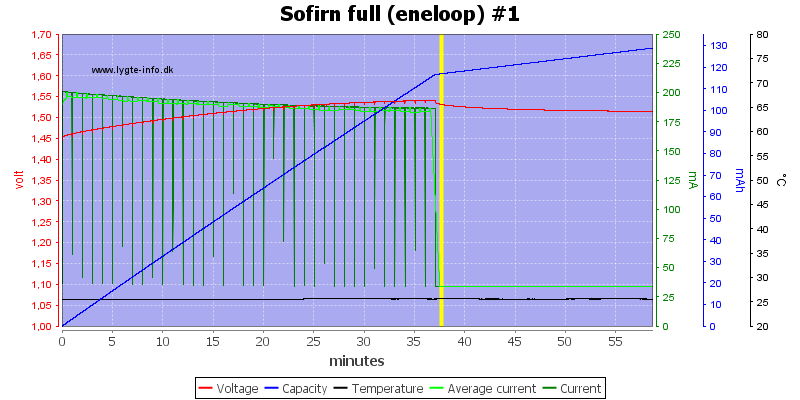
The charger is also very slow at detecting a full cell.
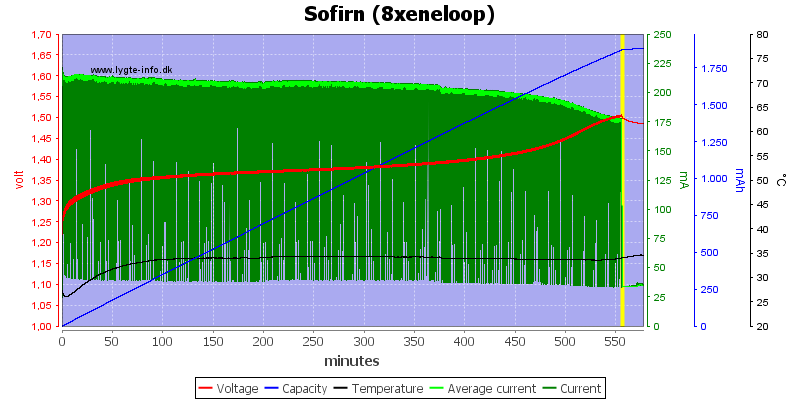
The charge current is the same with 8 cells in the charger.
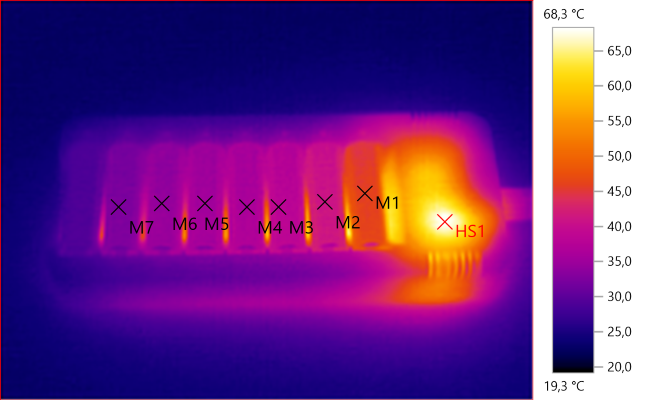
M1: 45,8, M2: 40,8, M3: 38,3, M4: 35,8, M5: 35,5, M6: 34,1, M7: 32,4, HS1: 68,3
The cell closest to the power supply of the charger is a bit on the warm side.
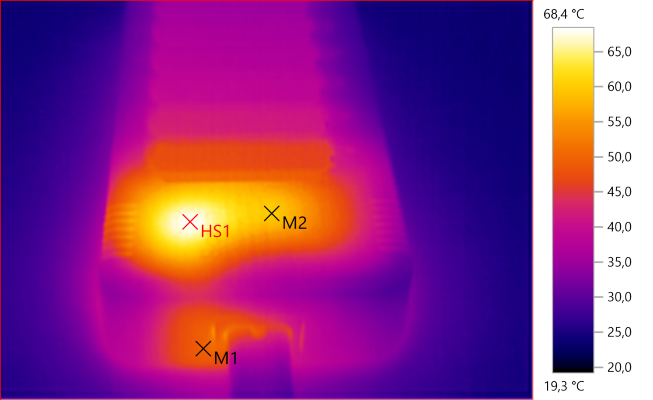
M1: 49,3, M2: 60,0, HS1: 68,4
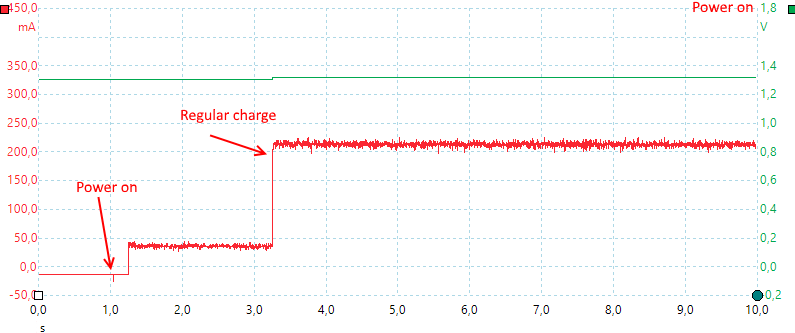
The charger starts in about 2 seconds.
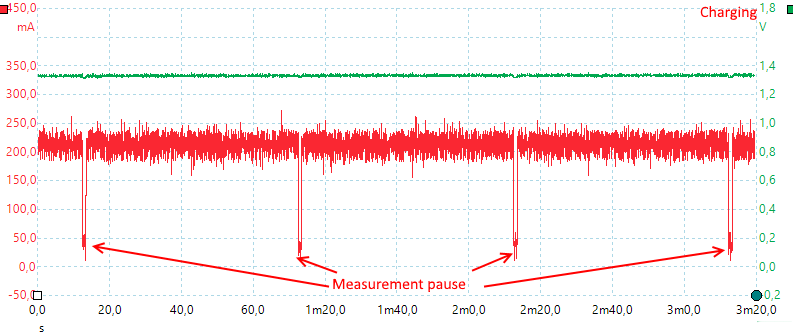
During charging it will take a short break each minute to measure the cell voltage.
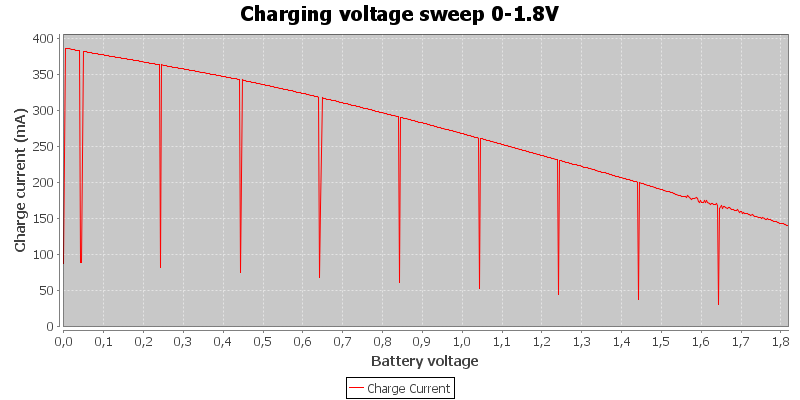
The charging current is depend on the battery voltage and it looks like it is controlled by a resistor.
Tear down
I was a bit curious how the 8 channels was done.
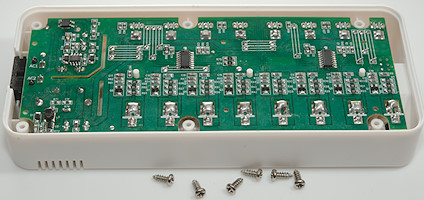
I had to remove 6 screws and I was inside the charger.
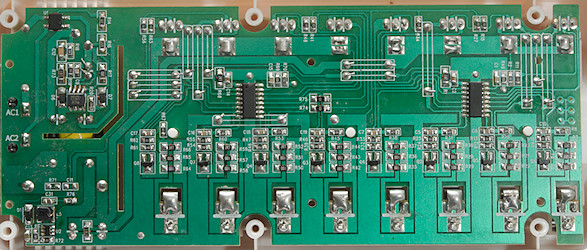
At the mains input there is a bridge rectifier and a switcher. There is some pins from a capacitor on the other side that is very close to making a short circuit. On the low volt side is about 2.6V and a small switcher that boost the voltage to 4.6V for the microprocessor.
The charger is not a 8 channel charger, but two 4 channels one, each with its own microprocessor that is without a type number.
The microprocessor must have two led outputs, one charge current and one analog input to measure voltage. One of the led outputs can be (and is) combined with the charge current on output. Each channel has a transistor to turn the current on and resistors to limit the current for AA and AAA. For AA it is two 10 ohm in parallel, with AAA a extra 2.7ohm is added in series. The voltage on the battery is measured through a 100kOhm resistor.

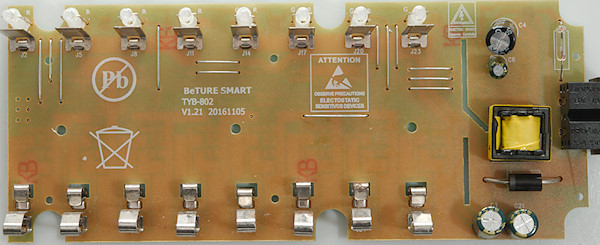
On this side is a input fuse, the smoothing capacitors, the transformer and the rectifier diode for the low voltage.
There is also all the battery connections and the leds.
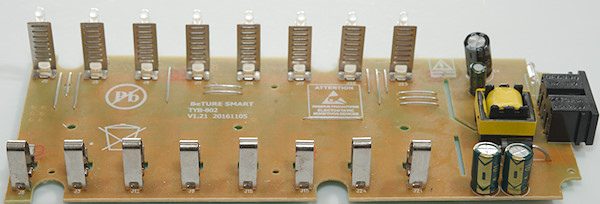
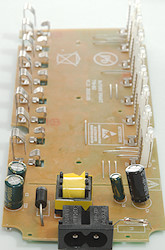
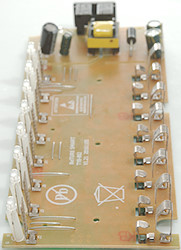

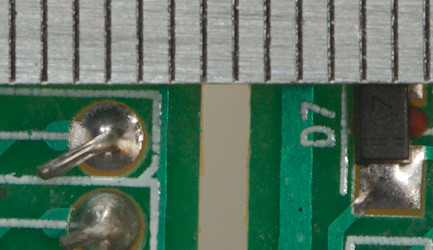
With a slot in the board the isolation distance must be 4mm, it looks like it is very slightly below that.
Testing the power supply with 2830 volt and 4242 volt between mains and low volt side, did not show any safety problems.
Conclusion
The charger charges fine with individual handling of each cell, but there is the detail about trickle charge. As long as the batteries are removed when the are finished (Within a couple of hours to a day) it is not a problem, but leaving them on the charger for weeks is a problem.
The charger is rather slow with about 9 hours for a 2000mAh cell.
I will rate it fairly good.
Notes
Here is an explanation on how I did the above charge curves: How do I test a charger
Charger selection table







































